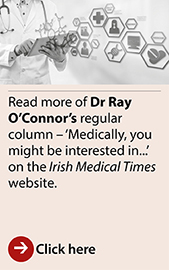Dr Ray O’Connor takes a have a look at the most recent medical papers on the remedy of stroke, and the way high-quality rehabilitation can minimise the affect of the situation
Globally, stroke is the second main reason for demise, and the third main reason for demise and incapacity mixed. Round 100,000 individuals have strokes annually, and round 1.3 million individuals within the UK have survived a stroke. Excessive-quality rehabilitation can minimise the bodily, emotional, cognitive, and social impacts for individuals who have had a stroke, and their carers. It might probably additionally yield substantial value financial savings to society.
The Nationwide Institute for Well being and Care Excellence (NICE) steerage on stroke rehabilitation in adults was up to date in October 2023.1 The rule of thumb abstract revealed within the BMJ earlier this 12 months2 covers chosen new and up to date suggestions and focuses on these most related to major care and neighborhood rehabilitation settings.

Dr Ray O’Connor
The primary suggestions are as follows. Stroke rehabilitation whole remedy time needs to be primarily based on the individual’s wants, with the quantity rising to at the very least three hours a day, on at the very least 5 days every week. Fatigue is frequent; use a validated scale for early evaluation. Supply imaginative and prescient and listening to evaluation. Think about referral to neighborhood participation programmes suited to the individual’s rehabilitation targets.
Apparently the American Coronary heart Affiliation and the American Stroke Affiliation additionally collectively revealed stroke prevention tips this 12 months3 It’s an in depth doc masking over 80 pages with 735 references.
The ‘Prime Ten Take-home Messages’ for busy clinicians are listed. A quick abstract is as follows. Everybody ought to have entry to and common visits with a major care well being skilled to determine and obtain alternatives to advertise mind well being. Screening for and addressing antagonistic social determinants of well being is essential within the strategy to prevention of incident stroke.
The Mediterranean weight loss program is a dietary sample that has been proven to scale back the chance of stroke. Bodily exercise is important for cardiovascular well being and stroke danger discount. Glucagon-like protein-1 receptor agonists have been proven to be efficient not just for bettering administration of kind 2 diabetes but in addition for weight reduction and reducing the chance of heart problems and stroke.
 Blood stress administration is vital for stroke prevention. Antiplatelet remedy is advisable for sufferers with antiphospholipid syndrome or systemic lupus erythematosus and not using a historical past of stroke or unprovoked venous thromboembolism to forestall stroke. Prevention of pregnancy-related stroke will be achieved primarily by administration of hypertension.
Blood stress administration is vital for stroke prevention. Antiplatelet remedy is advisable for sufferers with antiphospholipid syndrome or systemic lupus erythematosus and not using a historical past of stroke or unprovoked venous thromboembolism to forestall stroke. Prevention of pregnancy-related stroke will be achieved primarily by administration of hypertension.
Remedy of verified systolic blood stress ≥160 mm Hg or diastolic blood stress ≥110 mm Hg throughout being pregnant and inside six weeks postpartum is advisable. Endometriosis, untimely ovarian failure (earlier than 40 years of age), and early-onset menopause (earlier than 45 years of age) are all related to an elevated danger for stroke.
Subsequently, screening for all three of those circumstances is an inexpensive step within the analysis and administration of vascular danger elements in these people to scale back stroke danger. Lastly, the authors suggest that understanding transgender well being is important to actually inclusive medical observe.
Remedy of acute stroke, earlier than a distinction will be made between ischemic and haemorrhagic sorts, is difficult. This randomised managed trial4 studied whether or not very early blood-pressure management within the ambulance improves outcomes amongst sufferers with undifferentiated acute stroke.
The topics have been 2404 Chinese language sufferers with imply age of 70 years with stroke that induced a motor deficit and with elevated systolic blood stress (≥150 mm Hg). The authors randomly assigned sufferers who have been assessed within the ambulance inside two hours after the onset of signs, to obtain instant remedy to decrease the systolic blood stress (goal vary, 130 to 140 mm Hg) (intervention group) or common blood-pressure administration (usual-care group).
The outcomes have been that prehospital BP discount didn’t enhance practical outcomes. Apparently, 46.5 per cent subsequently acquired a analysis of haemorrhagic stroke.
Irritation has been related to incidence and recurrence of stroke, and danger of stroke was diminished in sufferers who’ve coronary artery illness and who have been handled with colchicine. This multicentre, double blind, randomised, placebo managed trial from China5 regarded to evaluate the efficacy and security of colchicine versus placebo on lowering the chance of subsequent stroke after excessive danger non-cardioembolic ischaemic stroke or transient ischaemic assault throughout the first three months of symptom onset.
The contributors have been 8,343 sufferers aged 40 years of age or older. Sufferers have been randomly assigned 1:1 inside 24h of symptom onset to obtain colchicine (0.5 mg twice each day on days 1-3, adopted by 0.5 mg each day thereafter) or placebo for 90 days. Sadly, no variations have been famous in remedy results on subsequent stroke between the low dose colchicine and the placebo teams.
More and more, the results of worldwide warming are leading to extremes of warmth. This ecological examine6 thought of what’s the burden of stroke worldwide related to extremes in temperature. The authors collected knowledge from the World Burden of Illnesses Examine 2019, the Local weather Analysis Unit Gridded Time Collection, and the World Financial institution database to estimate stroke burden attributable to nonoptimal temperature and its distributional traits on the world, regional, and nationwide ranges. The conclusion was that the burden of stroke attributable to nonoptimal temperature circumstances continued to extend, and growing older was a key issue on this improve. In 2019, 521,031 deaths and 9,423,649 incapacity adjusted life years (DALYs) have been attributable to stroke as a result of nonoptimal temperature globally.
References:
- Nationwide Institute for Well being and Care Excellence. Stroke rehabilitation in adults: Medical Guideline [NG236] 2023. good.org.uk/steerage/ng236
- Tang E et al. Tips. Stroke rehabilitation in adults: abstract of up to date NICE steerage. BMJ 2024;384:q498 http://dx.doi.org/10.1136/bmj.q498 (Printed March 24, 2024)
- Bushnell C et al. AHA/ASA Guideline 2024. Guideline for the Major Prevention of Stroke: A Guideline From the American Coronary heart Affiliation/American Stroke Affiliation
- Li G et al. Intensive Ambulance-Delivered Blood-Strain Discount in Hyperacute Stroke. N Engl J Med 2024 Might 30;390(20):1862-1872. doi: 10.1056/NEJMoa2314741 Epub 2024 Might 16.
- Li J et al. Colchicine in sufferers with acute ischaemic stroke or transient ischaemic assault (CHANCE-3): multicentre, double blind, randomised, placebo managed trial. BMJ 2024;385:e079061 http://dx.doi.org/10.1136/bmj‑2023‑079061
- Qu C et al. Burden of Stroke Attributable to Nonoptimal Temperature in 204 Nations and Territories A Inhabitants-Based mostly Examine, 1990–2019. Neurology® 2024;102:e209299. doi:10.1212/WNL.0000000000209299